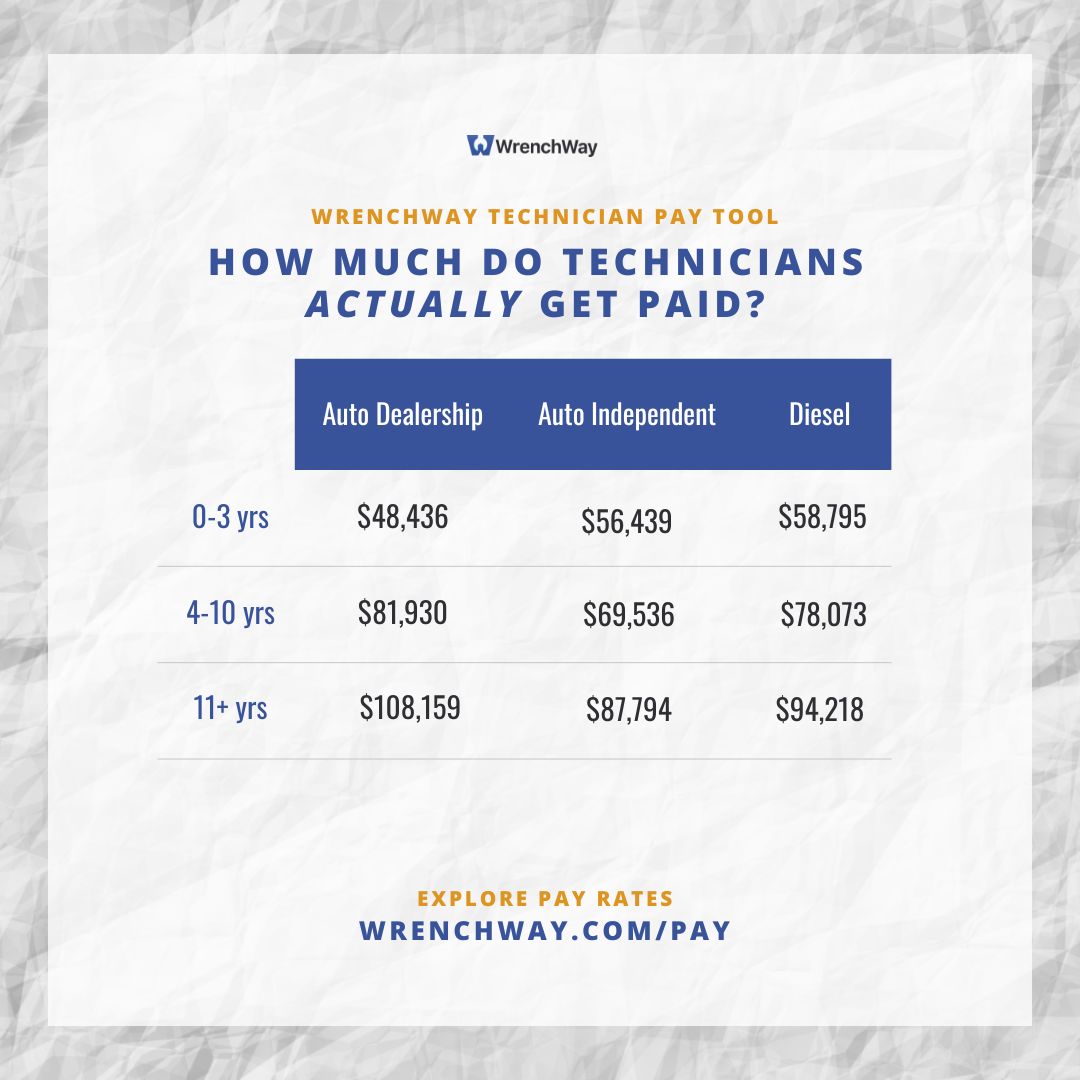Technician salary is a hot topic in the automotive and diesel industries. Historically, mechanics have been subjected to “grease monkey” misconceptions—portraying them as dirty and uneducated. There’s also a misconception that automotive and diesel technicians don’t have high earning potential, which is simply untrue.
These misconceptions are doing nothing to help the ongoing technician shortage. It’s important to set the record straight on how much technicians can actually make, so we can attract more young people to the industry.
Before we dive into how much technicians get paid, let’s talk about the Bureau of Labor Statistics (BLS).
The Problem with Data From the Bureau of Labor Statistics
The Bureau of Labor Statistics is often used as a resource to see the average of what individuals working in any given profession are making. The BLS calculates this number by collecting hourly rates. While this may be representative of some professions, it is an inaccurate representation for technicians for two big reasons:
- The average compensation does not account for bonuses.
- A large percentage of technicians get paid flat rate.
In addition, it’s important to remember that they are also taking average compensation of the lube technicians all the way to A-level master technicians. The responsibilities and earnings of those two positions are drastically different—making it very difficult to see the true earning potential of a good technician.
How Much Do Technicians Make?
We wanted to set the record straight on technician pay, so we created our own online tool where technicians can share their compensation information anonymously.
This data around technician pay gives a far better picture of the earning potential of technicians because it allows users to filter and search by the factors that affect pay, such as:
- Industry
- Shop type
- Location
- Experience
The online tool is new, but based on the 3,000+ responses we’ve received so far, here’s what the data is looking like for a few of the segments:

How We Determine Annual Compensation for Technicians
For our online Technician Pay Tool, we calculate pay by asking technicians to provide us with their gross pay for the whole year. This is the amount technicians actually make, not what they could make.
We highly encourage technicians to submit their pay information anonymously to the Technician Pay Tool. The more data we have, the more accurate a picture we can give students, their parents, and the general public about the earning potential of technicians.
Hidden Earning Potential of Technicians
Of course, there are often hidden earnings beyond base compensation with any profession—technicians are no exception.
Aside from the obvious monetary incentives, technicians can leverage a range of benefits to enhance their overall compensation package. These benefits may include health insurance, retirement plans, paid time off, and professional development opportunities. Access to comprehensive benefits not only improves financial security but also promotes overall well-being, making it an attractive perk for technicians seeking long-term stability and growth.
Lastly, many companies offer growth opportunities through training programs, certifications, and advancement pathways. We’ve heard of companies even paying for ASE certification, pass or fail! These training programs and certifications can be expensive, so this is a great benefit to take advantage of.
Debunking Misconceptions to Shape the Industry’s Future
Setting the record straight on how much technicians get paid is crucial if we want to address the ongoing technician shortage and attract more young people to the automotive and diesel industries. While outdated perceptions may depict technicians as low-earner, the reality is far different.
The unique pay structures, wide array of experience and education, and hidden earnings make it difficult to summarize or average how much technicians get paid. We hope our Technician Pay Tool can help shed light on the opportunities available in this growing industry.





